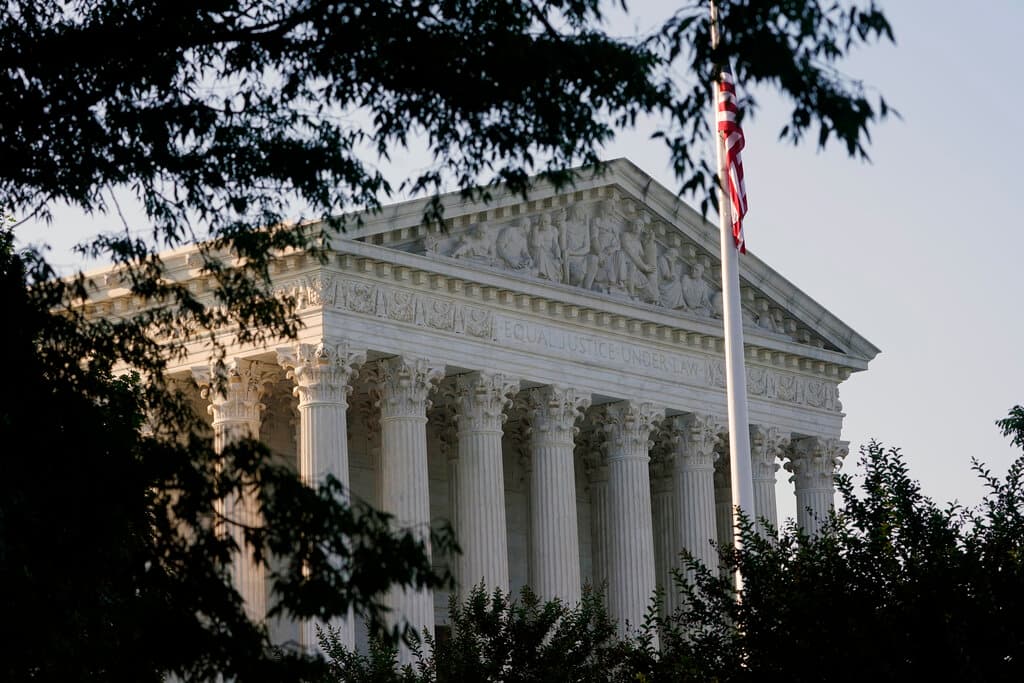Corporate America Rallies to Harvard’s Side in Affirmative Action Battle
The united front between campus and companies suggests that if the high court chooses to topple affirmative action, it will be arrayed against formidable forces.

Behemoths of American industry, from coffee barons to energy mavens to masters of internet search and the makers of the iPhone, are throwing their weight behind two of the country’s blue chip universities in an emerging alliance to defend the use of race in college admissions.
Apple, General Electric, Google, Starbucks, Uber, Bain & Company, and more have filed amicus — or “friend of the court” — briefs backing Harvard and the University of North Carolina’s efforts to preserve affirmative action. This united front between campus and companies suggests that if the high court chooses to topple affirmative action, it will be arrayed against formidable forces.
In weighing in on a constitutional question, corporations are blurring the line between shareholder value and ideological politics at precisely the moment when such mixtures are under national scrutiny. The high court’s burgeoning docket on the question suggests that affirmative action could be the next hot-button issue to play out in the boardroom as well as the courtroom.
The status quo, which allows for the limited use of race in the interest of promoting diversity on campus, is being challenged by Students for Fair Admissions, a nonprofit group that believes that consideration of race in admissions is “unfair, unnecessary, and unconstitutional.” In launching cases against the two schools, SFFA hopes to “eliminate race and ethnicity from college admissions.”
The “Brief for Major American Business Enterprises,” which garnered 60 signatories including the companies listed above, argues that they “rely on the nation’s schools to educate and train their future workers.” These “stakeholders” claim to “collectively employ more than 4 million people worldwide.”
While abjuring the taking of “a position on the constitutionality of the specific practices at issue here,” the companies maintain that “the government’s interest in promoting student-body diversity on university campuses remains compelling from a business perspective.” Classroom diversity, they argue, “is crucial to producing employable, productive, value-adding citizens in business.”
The brief casts its argument not in the language of the law but rather in the argot of the business world. The companies write: “Racial and ethnic diversity enhance business performance. Research and experience demonstrate that racial diversity improves decision-making by increasing creativity, communication, and accuracy within teams.”
The legal document adumbrated the pipelines between universities and the businesses that offer their graduates jobs, acknowledging that these corporations “depend on universities to recruit, admit, and train highly qualified, racially and ethnically diverse students to become the employees and business leaders of the future.”
“There is no doubt,” these companies argue, that “people of all races and ethnic backgrounds deserve a seat at every table and that increasing racial and ethnic diversity throughout Amici’s workforces is the right thing to do.” They believe that race-based admissions “promote cognitive growth and help develop the skills needed to thrive in the modern American economy.”
The Harvard and North Carolina cases have attracted an array of amicus briefs, and not only from the world of business. The American Civil Liberties Union, the Association of American Medical Colleges, and the Biden administration have all weighed in supporting affirmative action, suggesting that the stakes transcend the quad and will reverberate through widely.
The Association of American Medical Colleges went so far as to claim that “diversity literally saves lives by ensuring that the Nation’s increasingly diverse population will be served by healthcare professionals competent to meet its needs.”
For its part, the ACLU argues: “Race, and the experience of racial discrimination, continue to form the experiences of individuals, and in turn the operation of institutions.”Another brief, filed on behalf of “the leading science and technology companies,” asserts: “Today’s markets require capitalizing on the racial and other diversity among us.”
Some companies, such as Caterpillar, Marriott, Xerox, and 3M, signed on to an amicus brief in support of affirmative action in a 2016 case, Fisher v. University of Texas, but did not do so in the pair of cases currently before the court, indicating a shifting American climate where corporations are increasingly caught in the political fray.
To name just a few examples, Disney’s stance on the bill known as “Don’t Say Gay” led Govrnor DeSantis to propose stripping the entertainment giant of its tax perks in Florida, and corporations like Levi Strauss and J.P. Morgan have announced plans to cover travel for employees commuting to obtain an abortion. The year 2020 saw an armada of corporations line up behind Black Lives Matter.
Students for Fair Admissions will file its reply brief next month. It has already argued in lower courts that Harvard has demonstrated a form of discrimination against Asian-American students in its pursuit of race-conscious admissions. SFFA claims these practices violate the Constitution and federal law.
The amicus briefs generated by these corporations, who declare themselves committed to the same goals and methods as Harvard and UNC, do not address this claim. Oral arguments have been set for October 31.

